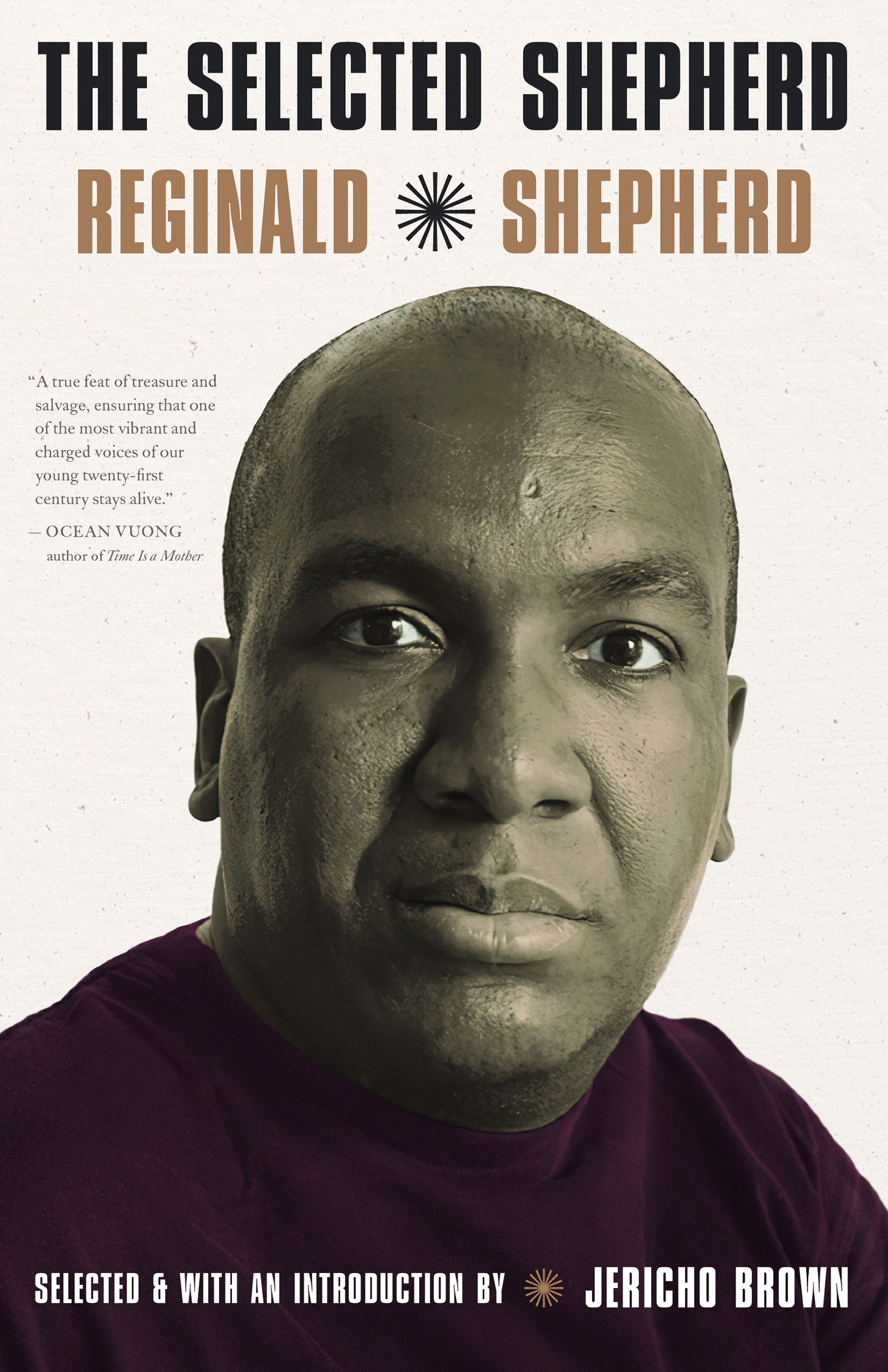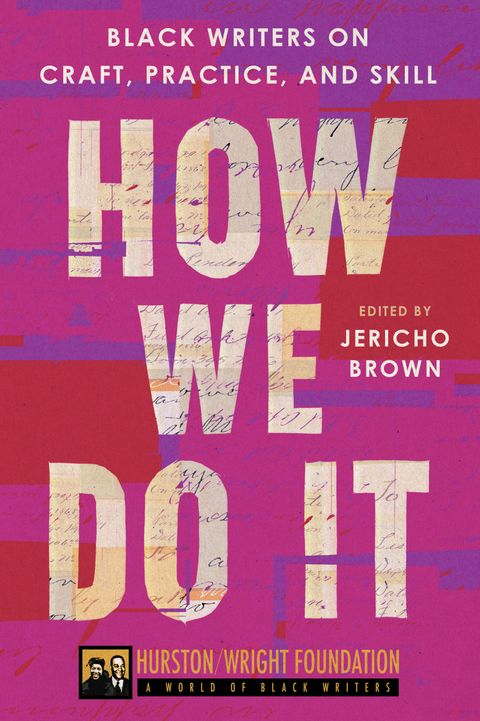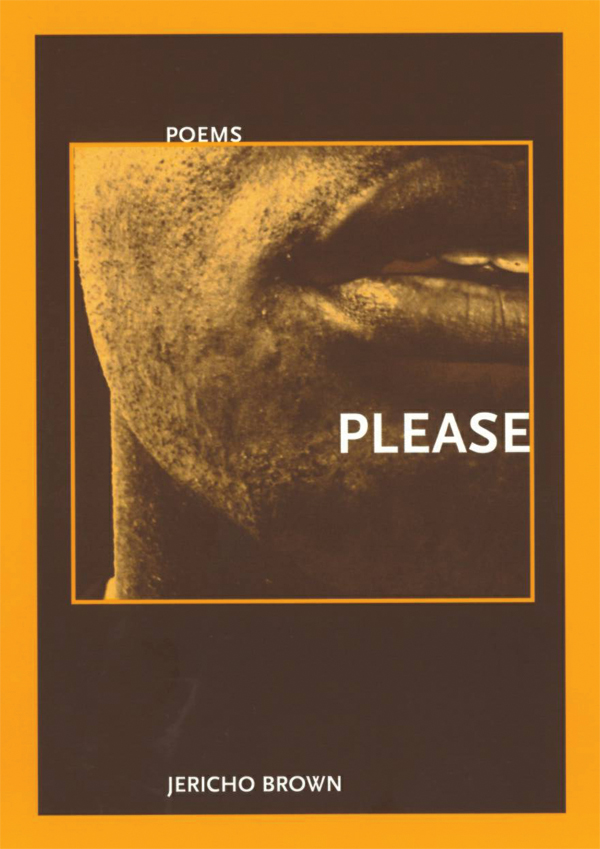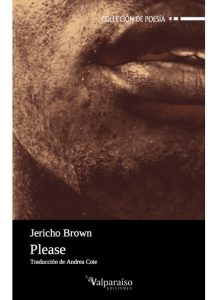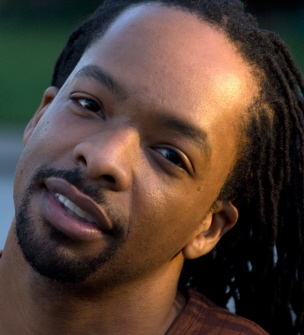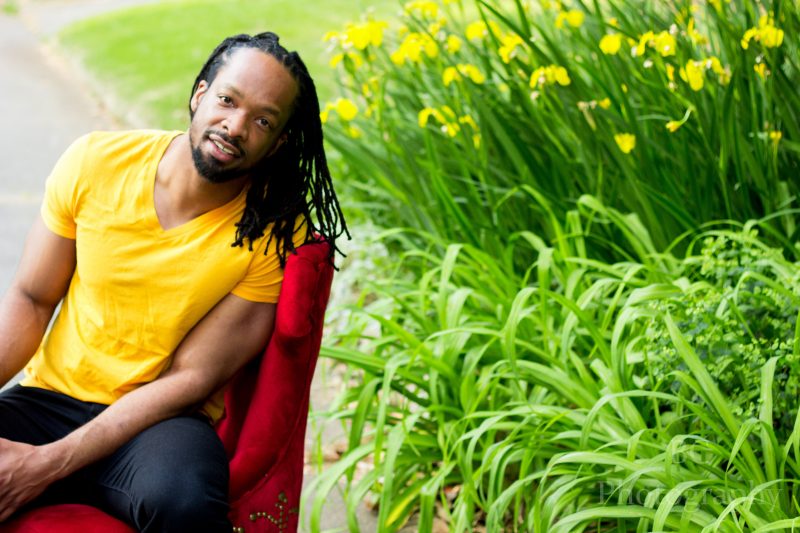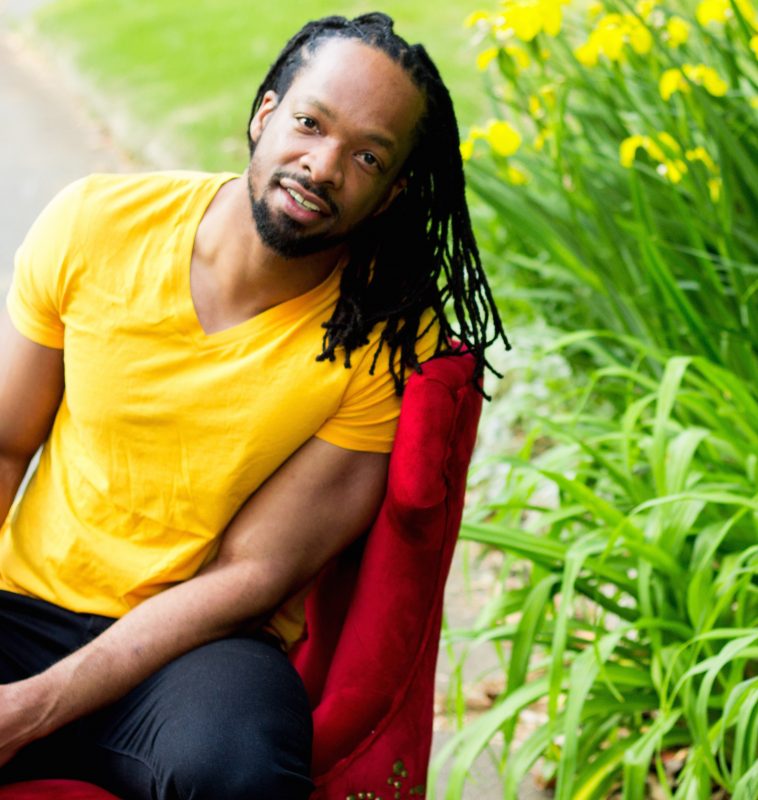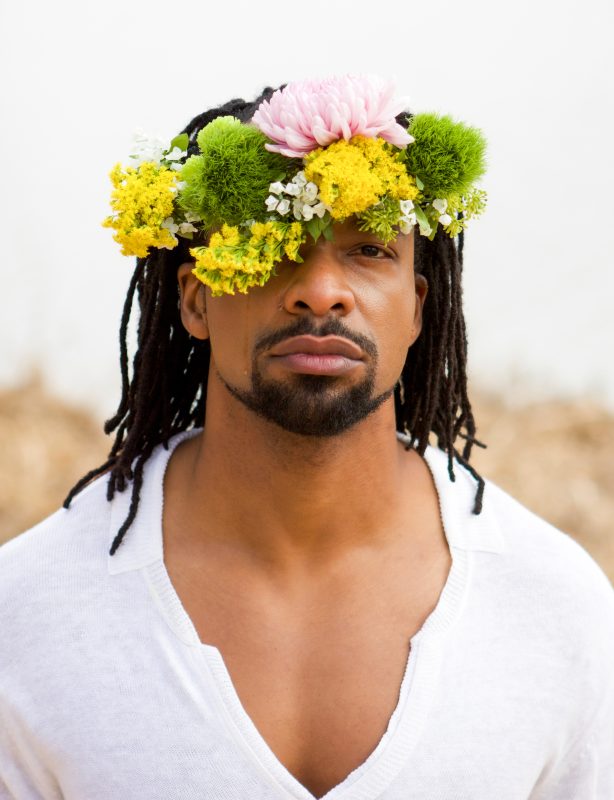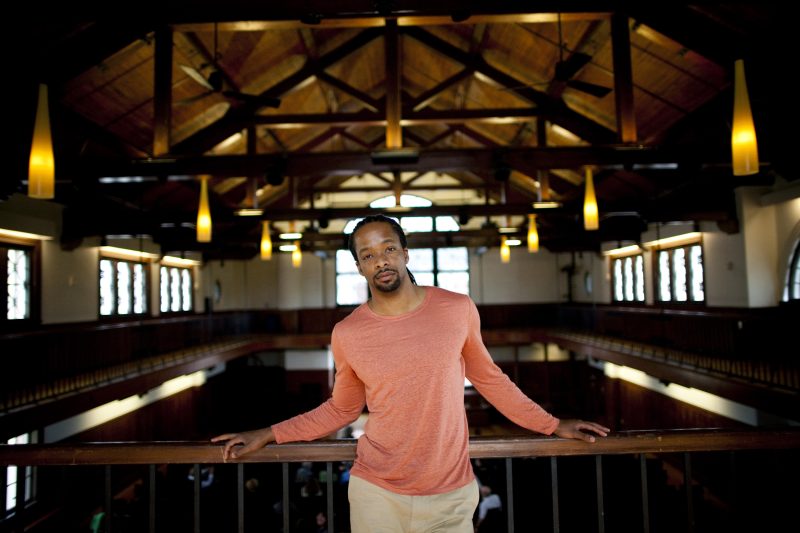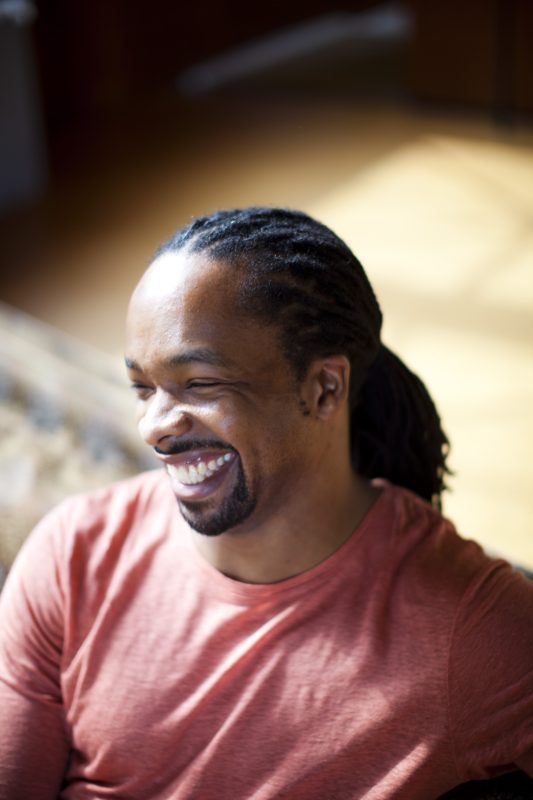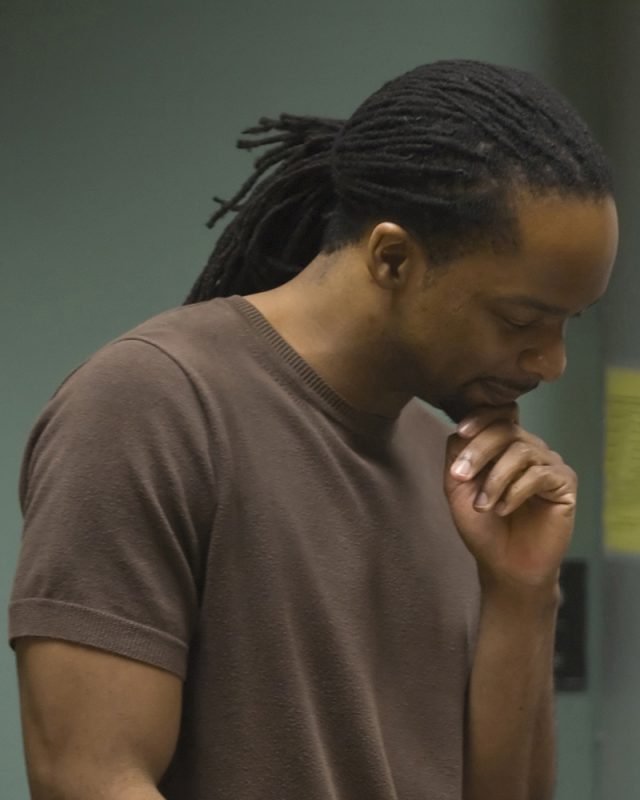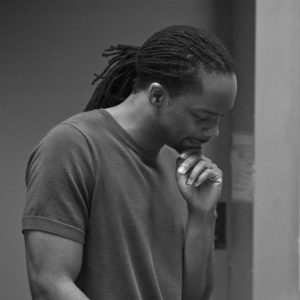
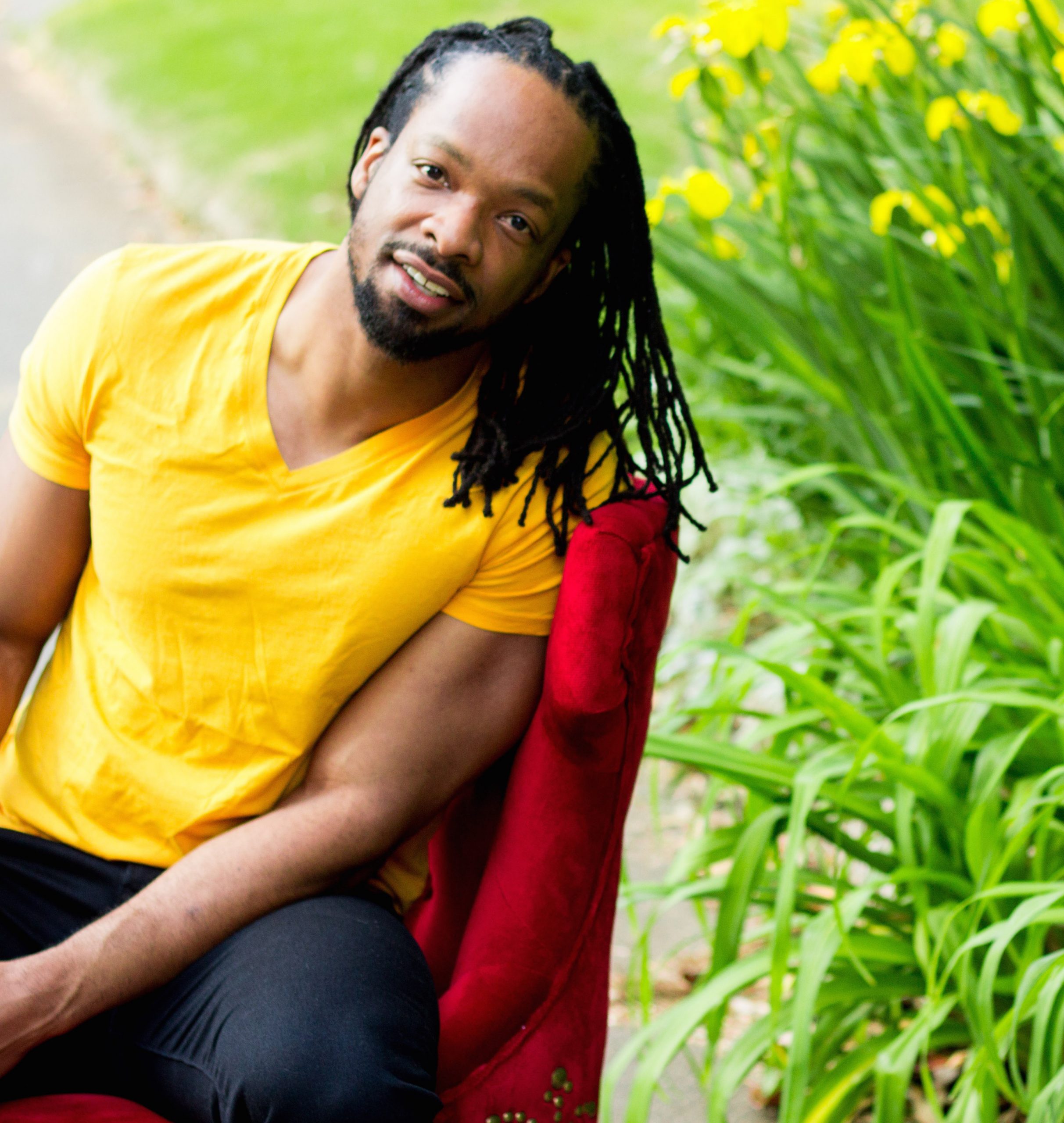
Jericho Brown
Pulitzer Prize-winning Poet MacArthur Genius Award
National Book Award Finalist
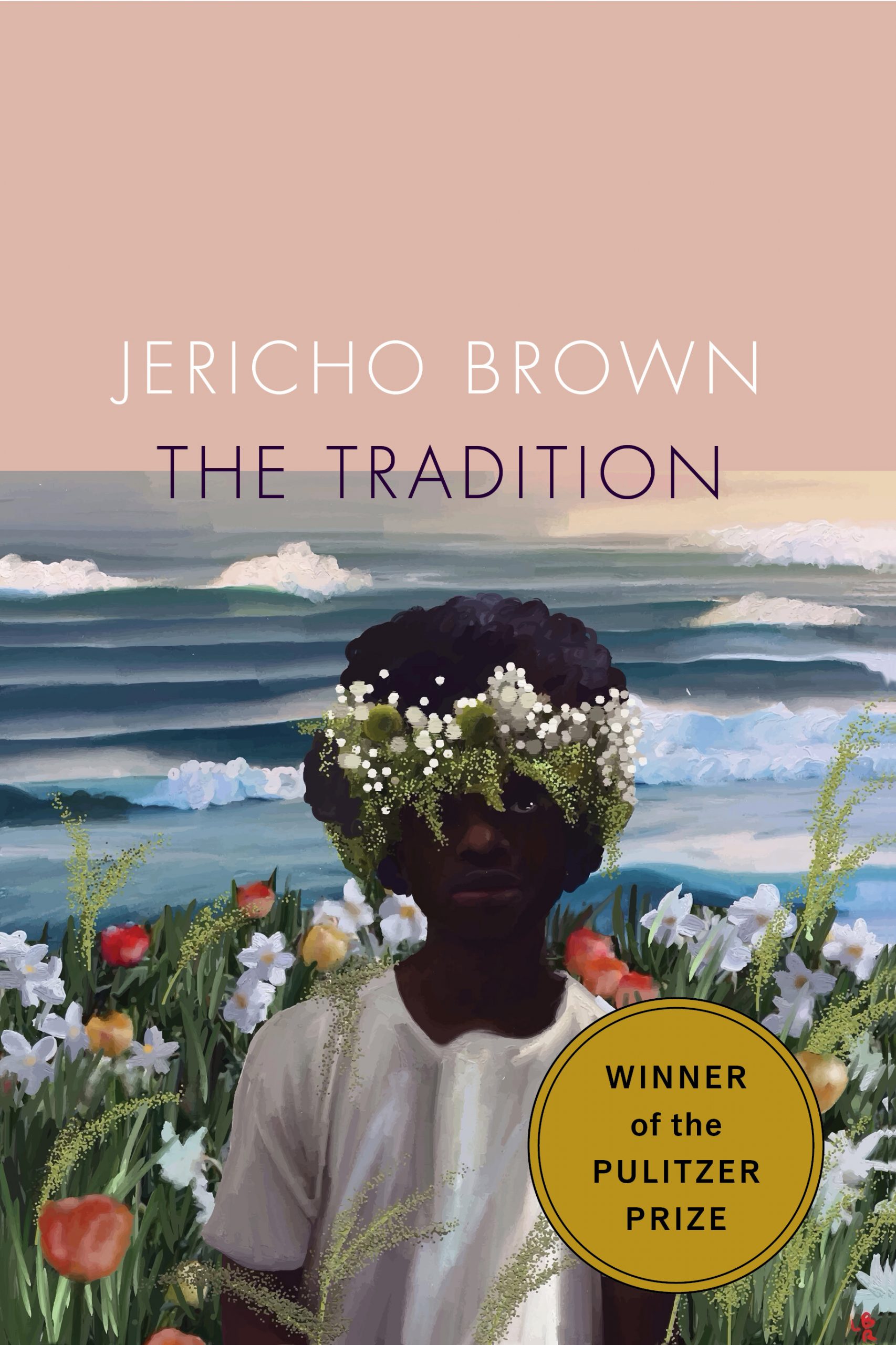
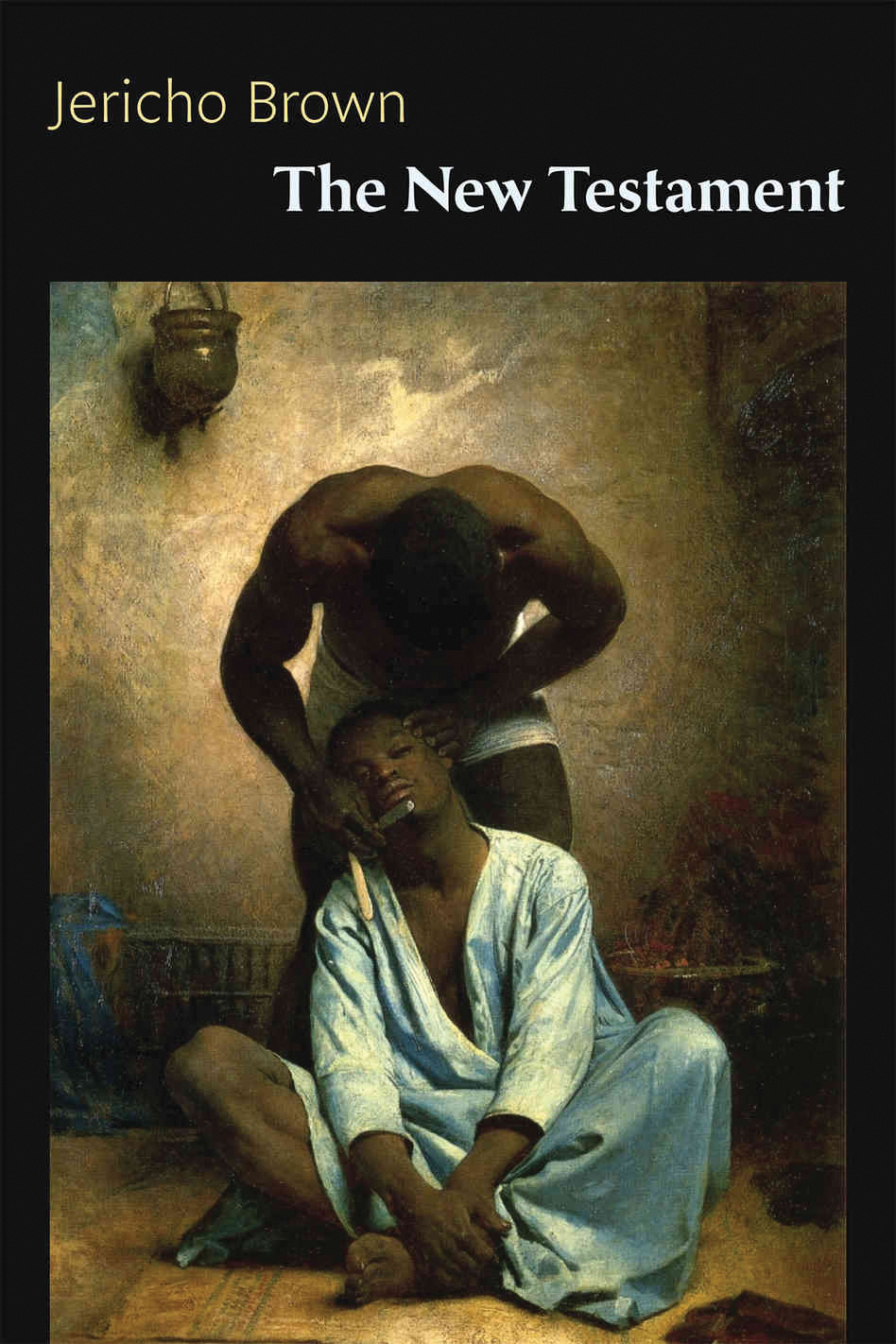
Readings &
Lecture Topics
- Jump-Start Your Engines Poetry Workshop
- The Blues We Can Use: The Performer as Persona in Black Poetry
- Poetry, Suicide, and Immortality
- The Religion of the Moment vs The Spirit of the Poem
- An Evening with Jericho Brown
Biography
“Erotic and grief-stricken, ministerial and playful, Brown offers his reader a journey unlike any other in contemporary poetry.” —Rain Taxi
“There are countless poets of the body, but the body in Brown’s poetry serves as a nexus of the corporeal and conceptual. The “body” of his work isn’t just a physical, individual one; it’s a stand-in for various (flawed) institutions of power and belief: national history, religion, mythology, the justice system.” —New York Times
“Brown’s poetry might be perceived as a speech act, an attempt to fight back against hate in its many guises.” —Glint Journal
Jericho Brown is the author of three collections of poetry: The Tradition (2019), a finalist for the 2019 National Book Award and the winner of the 2020 Pulitzer Prize for Poetry; The New Testament (Copper Canyon 2014), won the Anisfield-Wolf Book Award and was named one of the best of the year by Library Journal, Coldfront, and the Academy of American Poets; and Please (New Issues, 2008), which won the 2009 American Book Award. He is also the editor of the anthology How We Do It: Black Writers on Craft, Practice, and Skill (Amistad, 2023), and The Selected Shepherd (University of Pittsburgh Press, 2024), a new retrospective on the work of the important and sometimes controversial Black, gay poet Reginald Shepherd.
The New York Times Book Review notes of his most recent collection The Tradition: “In Brown’s poems, the body at risk — the infected body, the abused body, the black body, the body in eros — is most vulnerable to the cruelty of the world. But even in their most searing moments, these poems are resilient out of necessity, faithful to their account of survival, when survival is the hardest task of all: ‘So the Bible says, in the beginning, / Blackness. I am alive.’”
About Please, Terrance Hayes wrote, “This is the poetry of bloodship: the meaning of family, of love, of sexuality; the resonances of pain and the possibilities of redemption.” Of The New Testament, Craig Morgan Teicher said, in an NPR interview, “What’s most remarkable in these poems is that, while they never stop speaking through gritted teeth, never quite make the choice between hope and fear, they are always beautiful, full of a music that is a cross between the sinuous sentences of Carl Phillips, the forceful descriptions of Mark Doty, and hip rhythms of Terrance Hayes. They show Brown to be a part of a new guard of black and gay writers…unwilling in their writing to confine their identities. These poems offer an unlikely kind of hope: Brown’s ambivalence is evidence of a fragile belief in the possibility of change, of the will that makes change possible.” And as Claudia Rankine simply puts it, Jericho Brown’s poems offer their readers a window into his “devastating genius.”
Brown is the recipient of a MacArthur “Genius” Award (2024), the Whiting Writers Award, and fellowships from the The Academy of American Poets, John Simon Guggenheim Foundation, the National Endowment for the Arts, the Radcliffe Institute at Harvard University, the Bread Loaf Writers’ Conference, and the Krakow Poetry Seminar in Poland. He was a finalist for the Lambda Literary Award, the Thom Gunn Award, and the Hurston Wright Poetry Prize, and was elected an Academy Chancellor in 2024. His poems have appeared in The Nation, The New Yorker, The New Republic, and The Best American Poetry.
He grew up in Louisiana and worked as a speechwriter for the Mayor of New Orleans before earning his PhD in Literature and Creative Writing from the University of Houston. He also holds an MFA in Creative Writing from the University of New Orleans and graduated magna cum laude from Dillard University.
Brown lives in Atlanta where he is the Charles Howard Candler Professor of English and Creative Writing and Interim Director of Creative Writing at Emory University.
TESTIMONIALS
Yesterday Jericho came to campus and changed the lives of about 40 students and a few faculty. As typical, he was kind, generous, gracious, powerful, passionate, intelligent…it was a perfect day and the kids (and me, too) were covered in goosebumps and got teary-eyed occasionally. How many 17-18 year old high school students get to have a one-on-one encounter with a poet of Jericho’s power and stature? It was truly a special day and one none of us will ever forget. One girl said “well, my life just peaked. It’s all downhill from here.” —Maclay Prep
Jericho was engaging, generous, and brilliant with my class—they are definitely going to be life-long fans of his. And his reading was breathtaking. Often after these readings, people tell me they enjoyed the events, but this time, people have been thanking me for bringing Jericho—a whole other level of engagement. One normally non-effusive colleague even called his reading “life-changing.” —St Edwards University
Jericho was AMAZING during his visit to Babson. He was so engaged, so focused, so warm. His reading was simply extraordinary, both in the power of his reading/reciting of his poems, and in the generous and incisive Q&A he entertained afterward. I’ve been involved with the Thompson Visiting Poet Series for close to 25 years, and Jericho’s was one of the most memorable readings I’ve attended. And the comments and feedback in the days following—both from students and faculty and from those in the community beyond Babson—has been universally framed by praise and, well, awe. —Babson College.
Short Bio
Jericho Brown is the recipient of a Whiting Writers’ Award and fellowships from The Academy of American Poets, the John Simon Guggenheim Foundation, the Radcliffe Institute for Advanced Study at Harvard University, and the National Endowment for the Arts. Brown’s first book, Please (2008), won the American Book Award. His second book, The New Testament (2014), won the Anisfield-Wolf Book Award and was named one of the best of the year by Library Journal, Coldfront, and the Academy of American Poets. He is also the author of the collection The Tradition (2019), which was a finalist for the 2019 National Book Award and the winner of the 2020 Pulitzer Prize for Poetry. His poems have appeared in Buzzfeed, The Nation, The New York Times, The New Yorker, The New Republic, Time, and The Pushcart Prize Anthology, and several volumes of The Best American Poetry anthologies.
Visit Author WebsiteVideos
Publications
The Selected Shepherd
Anthology, 2024
Drawing from all six of his collections, The Selected Shepherd offers a new retrospective on the work of an important and sometimes controversial Black, gay poet. Although well known for his erotic poems about white men, Shepherd also wrote consistently about the natural world and its endangerment and his grief over his mother’s death. Presented in both publication order and the order in which they originally appeared within each collection, these poems highlight the most important themes of Shepherd’s work, along with both his predictability and unpredictability as a poet. Jericho Brown’s introduction provides additional context and insight on the life and work of this complex, groundbreaking figure in American poetry.
How We Do It: Black Writers on Craft, Practice, and Skill
Anthology, 2023
More than 30 acclaimed writers—including diverse voices such as Nikki Giovanni, David Omotosho Black, Natasha Trethewey, Barry Jenkins, Jacqueline Woodson, Tayari Jones, and Angela Flournoy—reflect on their experience and expertise in this unique book on the craft of writing that focuses on the Black creative spirit.
How We Do It is an anthology curated by Black writers for the creation and proliferation of Black thought. While a creator’s ethnicity does not solely define them, it is inherently part of who they are and how they interpret the world.
For centuries, Black creators have utilized oral and written storytelling traditions in crafting their art. But how does one begin the process of constructing a poem or story or character? How do Black writers, when faced with questions of “authenticity,” dive deep into the essence of their lives and work to find the inherent truth? How We Do It addresses these profound questions. Not a traditional “how to” writing handbook, it seeks to guide rather than dictate and to validate the complexity and range of styles—and even how one thinks about craft itself.
An outstanding list of contributors offer their insights on a range of important topics. Pulitzer Prize winner Jericho Brown explores the lives personified in poetry, while Pulitzer Prize winner Natasha Trethewey explores decolonizing enduring metaphors. National Book Award finalist Angela Flournoy illuminates the pain of grief in all forms and how it can be revealed in the act of creation, and iconoclast Nikki Giovanni offers an elegiac declaration on language.
New and previously published essays and interviews provide encouragement, examples, and templates, and offer lessons on everything from poetic form and plotting a story to the lessons inherent in the act of writing, trial & error, and finding inspiration in the works of others, including those of Toni Morrison, Shakespeare, and Edward P. Jones. A handbook and a reference tool, How We Do It is a thoughtful and welcome tool that offers direction to help Black artists establish their own creative practice while celebrating and widening the scope of the Black writer’s role in art, history, and culture.
Contributors include David Omotosho Black, Jericho Brown, Breena Clark, Rita Dove, Camille T. Dungy, W. Ralph Eubanks, Curdella Forbes, Angela Flournoy, Ernest Gaines, Nikki Giovanni, Marita Golden, Ravi Howard, Terrance Hayes, Mitchell S. Jackson, Barry Jenkins, Charles S. Johnson, Tayari Jones, Jamaica Kincaid, Tony Medina, E. Ethelbert Miller, Elizabeth Nunez, Carl Phillips, Jewell Parker Rhodes, Rion Amilcar Scott, Evie Shockley, Natasha Trethewey, Frank X Walker, Afaa M. Weaver, Crystal Wilkinson, Jacqueline Woodson, Tiphanie Yanique.
The Tradition
Poetry, 2019
“A collection of masterful lyrics that combine delicacy with historical urgency in their loving evocation of bodies vulnerable to hostility and violence.” – Pulitzer Prize Judges Citation
Jericho Brown’s daring new book The Tradition details the normalization of evil and its history at the intersection of the past and the personal. Brown’s poetic concerns are both broad and intimate, and at their very core a distillation of the incredibly human: What is safety? Who is this nation? Where does freedom truly lie? Brown makes mythical pastorals to question the terrors to which we’ve become accustomed, and to celebrate how we survive. Poems of fatherhood, legacy, blackness, queerness, worship, and trauma are propelled into stunning clarity by Brown’s mastery, and his invention of the duplex―a combination of the sonnet, the ghazal, and the blues―testament to his formal skill. The Tradition is a cutting and necessary collection, relentless in its quest for survival while revelling in a celebration of contradiction.
The New Testament
Poetry, 2014
“The New Testament chronicles life and death, personal rituals and blasphemies, race and nation, the good and the bad, as well as illuminating scenarios of self-interrogation and near redemption. The lyrical clarity in this poignant collection approaches ascension. And here the sacred and profane embrace … The New Testament is lit by signifying, an anthem of survival and jubilation.” — Yusef Komunyakaa
In the world of Jericho Brown’s second book, disease runs through the body, violence runs through the neighborhood, memories run through the mind, trauma runs through generations. Almost eerily quiet in even the bluntest of poems, Brown gives us the ache of a throat that has yet to say the hardest thing—and the truth is coming on fast. In The New Testament, Jericho Brown summons myth, fable, elegy, and fairy tale in a tender examination of race, masculinity, and sexuality. Intensely musical, Brown’s poetry is suffused with reverence—simultaneously transporting and transforming the reader. “As for praise and worship,” Brown says, “I prefer the latter.” The New Testament laments the erasure of culture and ethnicity, elegizes two brothers haunted by shame, yet extols survival in the face of brutality and disease. Brown seeks not to revise the Bible but to find the source of redemption. As Rae Armantrout puts it, “Jericho Brown is as outrageous as John Donne: he takes God for his lover, father, and murdered or murderous brother. He takes America, with its racism, homophobia, war, and reality television and throttles… no, swaddles it in the language of the Bible and the blues. You want to keep reading this book even when it hurts. Like that other new testament, it’s about what love can do.”
Please
Poetry, 2008
“His lyrics are memorable, muscular, majestic. His voice in these lines is alive—something that is quite rare in his generation of very bookish and very ironic poetics. Brown’s poems are living on the page, and they give the reader that much: a sense of having been alive fully, if only for a duration of 75 pages of this volume. Indeed, Jericho Brown’s first book is one of those rare things: a debut of a master poet.” —Ilya Kaminsky
Please explores the points in our lives at which love and violence intersect. Drunk on its own rhythms and full of imaginative and often frightening imagery, Please is the album playing in the background of the history and culture that surround African American/male identity and sexuality. Just as radio favorites like Marvin Gaye, Donny Hathaway, and Pink Floyd characterize loss, loneliness, addiction, and denial with their voices, these poems’ chorus of speakers transform moments of intimacy and humor into spontaneous music.
Articles & Audio
Read What’s In Print
• Academy of American Poets Names Jericho Brown Among New Chancellors – Poets.org
• The 25 Most Influential Works of Postwar Queer Literature – New York Times
• Heart to Heart With Jericho Brown About Poetry, Race and HIV – POZ
• Authors named to Georgia Writers Hall of Fame – UGA Today
• What Does Pride Mean Now? – The New York Times
• How Pulitzer Prize Winner Jericho Brown Wants Us To Read Poetry – Library Journal
• Poet Jericho Brown on His Life-Changing Pulitzer Prize Win – them.
• Fireside Chat With Pulitzer-Prize Winning Poet Jericho Brown – HRC
• Q&A: Jericho Brown talks about his Pulitzer Prize – Atlanta Mag
• Jericho Brown among 2020 United States Artists Fellows – Artforum
• Nominees announced for 51st NAACP Image Awards — NAACP
• 2019 NBCC Awards Finalists — NBCC
• Meet the Finalists for Next Week’s National Book Awards – LitHub
• 50 Unapologetically Queer Authors Share the Best LGBTQ Books of All Time — Oprah Mag
• The Book Lover’s Guide to Summer — The New York Times
• Leave the Car — The New York Times Style Magazine
• Listen Up: Four Poets on race, gender, and violence — Washington Post
• A Poetic Body of Work Grapples With the Physical Body at Risk — NYTimes
• 13 New Books to Read This April — TIME
• Jericho Brown: Of Fury — Tin House
• The Most Anticipated Books of Spring 2019 – Publisher’s Weekly
• “I Reject Walls”: A 2019 Poetry Preview – NPR
• Black Male Writers for Our Time — The New York Times
• Interview with Jericho Brown: Poetry is a veil in front of a heart – The Guardian
• Review of The New Testament by Jericho Brown – The Guardian
• Jericho Brown: ‘Poetry is a veil in front of a heart beating at a fast pace’ – The Guardian
• Future Raps and Sings of Your Dreams So that You too May Live Them by Jericho Brown – Flaunt
• From Enduring a Violent Childhood to Receiving a Guggenheim — The Atlanta Journal-Constitution
• Review of Please and The New Testament —Lambda Literary Review
• Interview with Jericho Brown on The New Testament — Arcadia University
• Review of The New Testament — Muzzle
• Review of The New Testament — The Rumpus
• Interview with Audio Reading of ‘”Heart Condition” — PBS NewsHour
• Review of The New Testament — NPR
• Interview with Jericho Brown — Kenyon Review
• Essay: “Thrive” — The Oxford American Magazine
• New American Poets: Jericho Brown — Poetry Society
• Article on The New Testament — Harvard Gazette
• Interview with Jericho Brown — Emory University
Listen to Audio
• Jericho Brown Takes on Tradition – PBS
• The Poet and the Poem Interview – Grace Cavalleri
• Interview: Pulitzer Prize winner’s works inspired by Shreveport roots – Shreveport Times
• Poetry Callout: Write A Poem For Ahmaud Arbery – NPR
• Jericho Brown: Small Truths and Other Surprises — On Being with Krista Tippett
• This is Just to Say: Jericho Brown with Carrie Fountain
• Listen to Jericho Brown read “A Young Man” – Poets
• Jericho Brown reads “Night Shift” – The New Yorker
• Jericho Brown reads “Deliverance” – TriQuarterly
• Jericho Brown reads Herman Finley — Poetry Foundation
• Jericho Brown Reads “Labor” from The New Testament — PBS NewsHour
• Jericho Brown Reads “Love’s Philosophy” by Percy Bysshe Shelley — Romantic Circles
Selected Writings
• Read “Inaugural” – The New York Times
• Read “Say Thank You I’m Sorry” – The New York Times
• Read “The Contract” – Poetry Foundation
THE TRADITION
Aster. Nasturtium. Delphinium. We thought
Fingers in dirt meant it was our dirt, learning
Names in heat, in elements classical
Philosophers said could change us. Star Gazer.
Foxglove. Summer seemed to bloom against the will
Of the sun, which news reports claimed flamed hotter
On this planet than when our dead fathers
Wiped sweat from their necks. Cosmos. Baby’s Breath.
Men like me and my brothers filmed what we
Planted for proof we existed before
Too late, sped the video to see blossoms
Brought in seconds, colors you expect in poems
Where the world ends, everything cut down.
John Crawford. Eric Garner. Mike Brown.
ODD JOBS
I spent what light Saturday sent sweating
And learned to cuss cutting grass for women
Kind enough to say they couldn’t tell
The damned difference between their mowed
Lawns and their vacuumed carpets just before
Handing over a five dollar bill rolled tighter
Than a joint and asking me in to change
A few light bulbs. I called those women old
Because they wouldn’t move out of a chair
Without my help or walk without a hand
At the base of their backs. I called them
Old, and they must have been; they’re all dead
Now, dead and in the earth I once tended.
The loneliest people have the earth to love
And not one friend their own age—only
Mothers to baby them and big sisters to boss
Them around, women they want to please
And pray for the chance to say please to.
I don’t do that kind of work anymore. My job
Is to look at the childhood I hated and say
I once had something to do with my hands.
—from The New Testament
ROMANS 12: 1
I will begin with the body,
In the year of our Lord,
Porous and wet, love-wracked
And willing: in my 23rd year,
A certain obsession overtook
My body, or I should say,
I let a man touch me until I bled,
Until my blood met his hunger
And so was changed, was given
A new name
As is the practice among my people
Who are several and whole, holy
And acceptable. On the whole
Hurt by me, they will not call me
Brother. Hear me coming,
And they cross their legs. As men
Are wont to hate women,
As women are taught to hate
Themselves, they hate a woman
They smell in me, every muscle
Of her body clenched
In fits beneath men
Heavy as heaven—my body,
Dear dying sacrifice, desirous
As I will be, black as I am.
COLOSSEUM
I don’t remember how I hurt myself,
The pain mine
Long enough for me
To lose the wound that invented it
As none of us knows the beauty
Of our own eyes
Until a man tells us they are
Why God made brown. Then
That same man says he lives to touch
The smoothest parts, suggesting our
Surface area can be understood
By degrees of satin. Him I will
Follow until I am as rough outside
as I am within. I cannot locate the origin
Of slaughter, but I know
How my own feels, that I live with it
And sometimes use it
To get the living done,
Because I am what gladiators call
A man in love – love
Being any reminder we survived.

